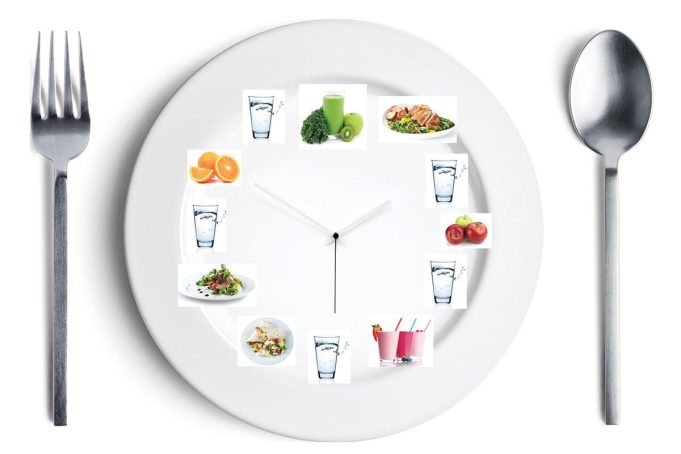In the quest for effective weight loss strategies, the focus often falls on what we eat, but the question of when we eat is gaining increasing attention. The concept of meal timing has emerged from the shadows of dietary discussions, challenging the conventional wisdom that calories are simply calories, no matter when they are consumed. As the sun rises and sets, our bodies follow a natural rhythm, and some researchers suggest that aligning our eating habits with these rhythms could be the key to unlocking more efficient weight loss. In this exploration of meal timing, we delve into the science and the myths, seeking to understand whether the clock, as much as the calorie, plays a pivotal role in our journey towards a healthier weight.
Exploring the Science Behind Meal Timing and Metabolism
In recent years, the concept of meal timing has captured the attention of scientists and health enthusiasts alike, sparking debates on its impact on metabolism and weight management. Emerging studies suggest that the timing of your meals may play a role in how efficiently your body processes food, potentially influencing weight loss outcomes. Our bodies follow a natural circadian rhythm, which dictates various physiological processes, including metabolism. Aligning meal times with these rhythms could optimize metabolic efficiency, leading to improved weight loss results.
- Early Meals: Consuming a substantial breakfast might help in kick-starting the metabolism and stabilizing blood sugar levels throughout the day.
- Evening Meals: Eating lighter dinners could minimize the risk of excess calorie storage, as metabolism naturally slows down in the evening.
- Intermittent Fasting: This popular approach restricts eating to certain windows of time, which may promote fat burning and improve metabolic health.
However, it’s essential to note that individual responses to meal timing can vary significantly. While some may experience noticeable benefits, others might find that their weight loss efforts are more influenced by overall caloric intake and dietary choices. Thus, the quest to understand the full impact of meal timing on metabolism continues, urging further exploration and personalized approaches to nutrition.

Synchronizing Meals with Your Body Clock for Optimal Results
Understanding the intricate dance between your body’s circadian rhythm and your eating schedule can be a game-changer in the quest for weight loss. Research suggests that aligning your meals with your body’s natural clock not only enhances metabolism but also optimizes digestion. By eating in harmony with your circadian rhythm, you may experience improved energy levels and reduced hunger pangs, potentially leading to more effective weight management.
Consider these key points when planning your meals:
- Morning Boost: Breakfast should be consumed within the first hour of waking to kickstart your metabolism.
- Midday Fuel: Aim for a substantial lunch when your digestive system is at its peak efficiency.
- Evening Wind Down: Keep dinner light and early to align with the body’s natural wind-down process.
By embracing these strategies, you might find that your body responds more positively to your weight loss efforts, leading to results that are both effective and sustainable.

The Role of Breakfast, Lunch, and Dinner in Weight Management
The intricate dance of breakfast, lunch, and dinner plays a pivotal role in the symphony of weight management. While the timing of meals may not be a magic wand for shedding pounds, it certainly contributes to the body’s metabolic harmony. Research suggests that front-loading calories—consuming more in the morning and less in the evening—can align with our natural circadian rhythms, potentially enhancing weight loss efforts. Yet, the journey to a healthier weight isn’t solely about when you eat, but also about the quality and quantity of food consumed.
- Breakfast: Often heralded as the most important meal, it can kickstart your metabolism and curb cravings throughout the day.
- Lunch: A balanced midday meal provides sustained energy, preventing the afternoon slump and reducing the likelihood of overeating later.
- Dinner: While it should be lighter, ensuring it’s nutritious can aid in overnight recovery and prepare you for the next day.
Embracing mindful eating and considering the body’s natural rhythms might just be the secret ingredients in your weight management recipe. As with all things in nutrition, personal preference and lifestyle should guide your meal timing strategy, ensuring it is both sustainable and enjoyable.

Practical Meal Timing Tips for Effective Weight Loss
Timing your meals strategically can play a significant role in your weight loss journey. Start your day with a balanced breakfast to kickstart your metabolism, and aim to consume the bulk of your calories earlier in the day. This helps in aligning with your body’s natural circadian rhythms, promoting better digestion and energy utilization. Lunch should be your largest meal, providing the necessary fuel for the afternoon. Ensure it is rich in proteins, healthy fats, and complex carbohydrates to sustain energy levels.
In the evening, opt for a lighter dinner and try to eat at least two to three hours before bedtime to give your body ample time to digest. This practice not only aids in better sleep but also prevents the storage of excess calories as fat. Incorporate healthy snacks like fruits, nuts, or yogurt in between meals if needed, but be mindful of portion sizes. Staying consistent with your meal timing can help in maintaining stable blood sugar levels, reducing cravings, and ultimately, supporting your weight loss goals.
- Eat breakfast within an hour of waking up.
- Keep lunch and dinner at consistent times daily.
- Avoid late-night snacking.






























